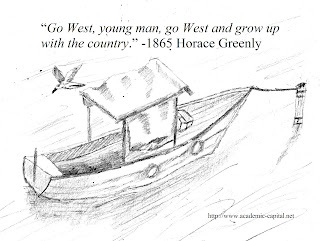Countries are still on their paths of growth and seek to
develop organizations that are effective and well-managed. This management
comes into play when organizations have a sense of the human capital that goes
into a healthy business model s and profitable organizations. Research helps
decision makers understand the level of performance, achievement of targets and
ways of motivating people.
Through the development of strong management techniques, it
is possible to derive higher forms of organizational development. Some
countries are predisposed to generate higher performing organizations than
others that have poor human rights understandings. The differences between
first world and third world organizations become apparent when analyzing a
number of organizations longitudinally.
Research by Bloom, Genakos, Sadun, and Van Reenen (2012)
reviewed over 10,000 organizations in the timeframe of a decade with an attempt
to determine their performance monitoring, target settings, and
incentives/people management styles. The results are summarized into the ten
following concepts:
1.) U.S. manufacturing firms scored higher than any other
country. Countries such as Canada, Germany, Japan, and Sweden were also well
managed while Brazil, China, and India were much less well managed.
2.) Even though each country has a variety of manageability generally
poor performing countries have larger tails of very poorly run other organizations (i.e. local government, businesses, institutions, etc.).
3.) American retail and hospitals ranked high but high
schools ranked poorly.
4.) Nonmanufacturing sectors had wider spreads than other
sectors.
5.) Government owned organizations had the worst management
practices and subsequent performance based on tenure not allowing poor
performers to be removed.
6.) Private-sector companies managed by first descendants of
the founders were poorly managed while those run by a professional firm were
better off.
7.) Multinational firms adapted strong management practices.
8.) Difficult markets were associated with better
management.
9.) Light levels of labor market regulation were associated
with positive management.
10.) The higher the education level of managers the better
the management practices.
The research helps highlight how American firms are still
leading the game of positive management. Countries such as German, Japan and
Sweden have also done well in their administration styles while poor firms
reside more widely in third world nations. Furthermore, multinational forms of companies
seem to adapt and maintain strong management practices that help them maintain
an economic foothold. Organizations also saw better management with higher
levels of management education. This helps decision makers understand that
greater connections between academia and business can be helpful in gaining competitive
advantages. Yet even though a higher college education was a benefit it would
appear that government run entities and high school education were still
considered very poorly managed in the U.S.
Bloom, N., Genakos, C., Sadun, R. & Reenen, J. (2012).
Management practices across firms and countries. Academy of Management Perspectives, 26 (1).
